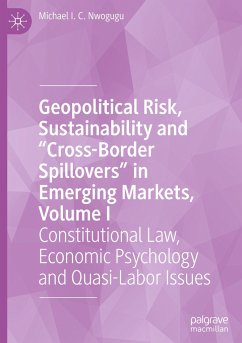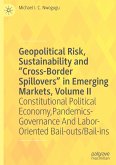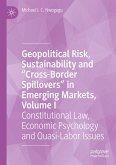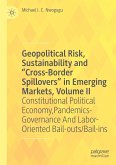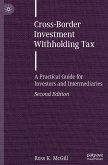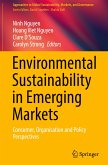Economic recessions, social networks, environmental damage in several large countries (eg. China, Brazil, U.S.), the Global Financial Crisis of 2007-2015 and cross-border spillovers continue to significantly affect economic systems, financial markets, social structures and environmental compliance worldwide. These have rekindled economists' and policy-makers' interest in the relationships among constitutions, risk regulation, foreign aid, political systems, government size, credit expansion and sustainable growth. Risk regulation remains highly ineffective as manifested by the failures of new financial regulations and government stimulus programs that were implemented during 2007-2020 in many developed countries and emerging markets countries.
This book, the first of two volumes, addresses these issues in the context of the role of constitutional economics and economic psychology as tools for national and global sustainable growth and risk management. Furthermore, this volume analyzes the often symbiotic relationship between alternative sets of legal-institutional-constitutional rules that constrain the choices and activities of economic and political agents on one hand, and sustainable growth, financial regulation and the risk management of financial institutions on the other; and reviews the effects of constitutions and legal institutions on market dynamics (real estate; fixed-income, stocks; etc.) including volatility, market depth and liquidity. This book will help researchers develop better artificial intelligence and decision-systems models of geopolitical risk, public policy and international capital flows, all of which are increasingly relevant to investment managers, boards-of-directors and government officials.
This book, the first of two volumes, addresses these issues in the context of the role of constitutional economics and economic psychology as tools for national and global sustainable growth and risk management. Furthermore, this volume analyzes the often symbiotic relationship between alternative sets of legal-institutional-constitutional rules that constrain the choices and activities of economic and political agents on one hand, and sustainable growth, financial regulation and the risk management of financial institutions on the other; and reviews the effects of constitutions and legal institutions on market dynamics (real estate; fixed-income, stocks; etc.) including volatility, market depth and liquidity. This book will help researchers develop better artificial intelligence and decision-systems models of geopolitical risk, public policy and international capital flows, all of which are increasingly relevant to investment managers, boards-of-directors and government officials.

